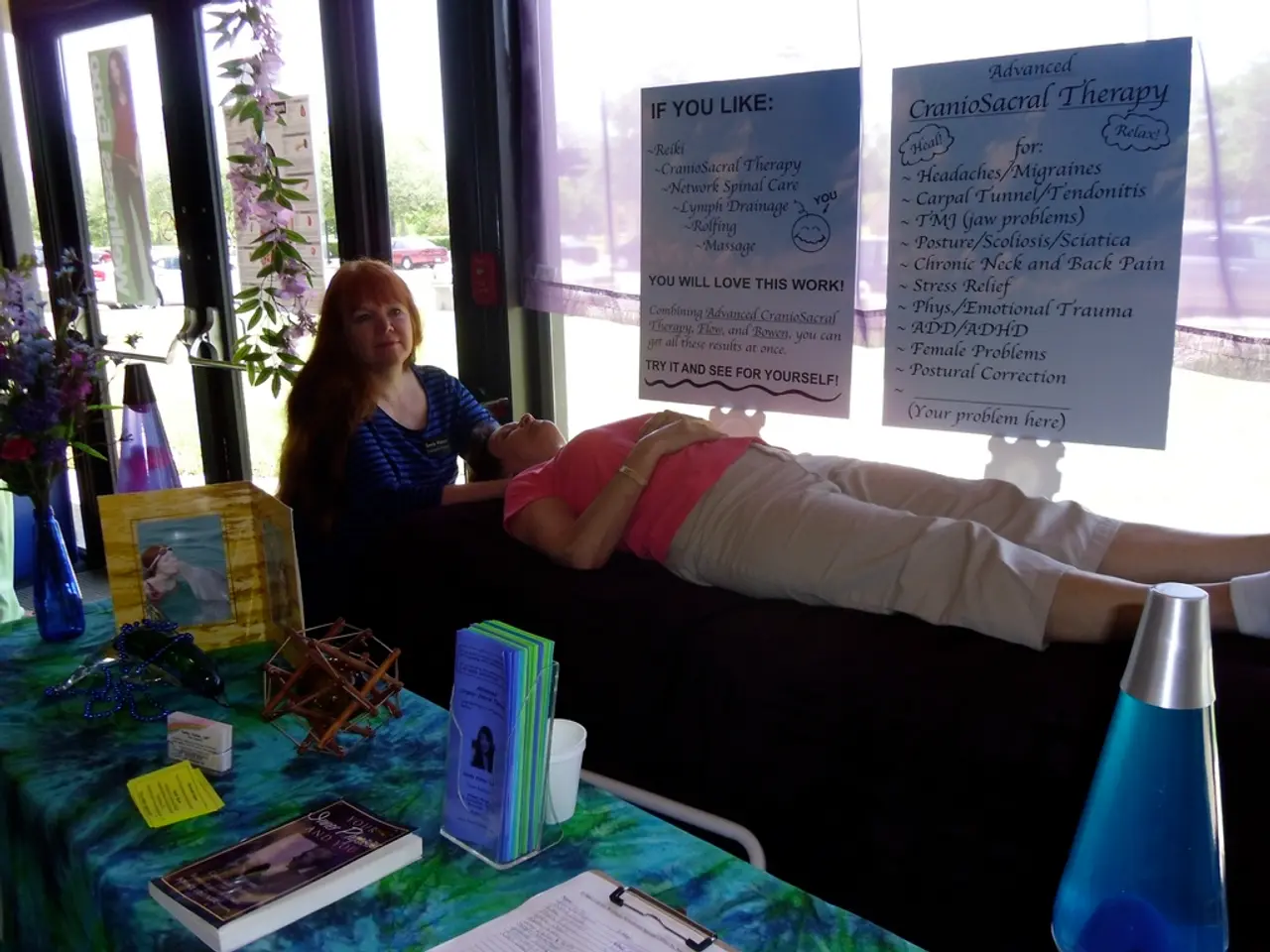Symptoms of ADHD Affecting Your Romantic Partnership
In relationships, adult Attention Deficit Hyperactivity Disorder (ADHD) can present unique challenges. Symptoms such as restlessness, forgetfulness, and impulsivity can make communication and bonding tricky. However, with the right strategies, it's possible to turn these challenges into opportunities for growth.
ADHD is a neurodevelopmental disorder that affects attention, hyperactivity, and impulsivity. Approximately 4.4% of adults in the U.S. deal with ADHD, and it's essential to understand how it can impact relationships.
One of the primary areas where ADHD can cause difficulties is communication. A study in the Journal of Attention Disorders found that adults with ADHD often interrupt during conversations, while a study in Psychological Bulletin (Malloy-Diniz et al., 2007) indicates that impulsivity can lead to spontaneous decisions causing problems.
Effective communication strategies for adults with ADHD in relationships include open and honest communication about how ADHD affects each partner, using clear, specific language without vague complaints, and practicing active listening with patience and empathy. Both partners benefit from discussing their needs and expectations regularly, using tools like notes or reminders to stay focused, and avoiding blaming language by focusing on problem-solving together.
Additional strategies useful for communication include using "I" statements to express feelings without assigning blame, practicing active listening with patience and empathy, pausing before reacting to manage impulsivity and emotional dysregulation, role-playing exercises to improve taking turns in conversation and reducing impulsive interruptions, utilizing reminders, alarms, or shared apps to keep track of important conversations or plans, and dividing tasks and responsibilities according to each partner's strengths.
Seeking counseling from someone who understands ADHD can help improve communication and bonding in relationships. Cognitive Behavioral Therapy (CBT) can help adults with ADHD manage emotional turbulence, while learning to pause before making decisions can help manage impulsivity.
Navigating ADHD in a partnership requires empathy, patience, and a "let's do this" attitude. Setting time boundaries for hyperfocus can help maintain a balance in relationships, while finding shared interests with a partner can make bonding more enjoyable. Making big choices together with a partner can help mitigate the effects of impulsivity.
Expressing needs about balancing 'me time' and 'we time' is important for healthy relationships. Hyperfocus can lead to partners feeling left out or neglected, so setting aside dedicated time for each other is crucial. In the Journal of Psychology and Psychiatry (Hupfeld et al., 2019), it was noted that hyperfocus can cause partners to feel neglected.
Overall, building patience, empathy, and teamwork is essential to turning challenges into growth opportunities within ADHD-affected relationships. Seeking resources, such as websites, can help guide steps forward in managing ADHD in relationships. With the right strategies and support, it's possible to build strong, lasting relationships despite ADHD.
[1] Hallowell, E. M., & Ratey, J. J. (2005). Delivered from Distraction: Getting the Most out of Life with Attention Deficit Disorder. Ballantine Books. [2] Barkley, R. A. (2015). Taking Charge of Adult ADHD: The Complete, Authoritative Guide for Living Well on Your Own Terms. Guilford Press. [3] Safren, S. A., Sprich, S., & Wycoff, J. M. (2000). Impulsivity and anger in adults with attention-deficit/hyperactivity disorder. Journal of Consulting and Clinical Psychology, 68(5), 808-816. [4] Safren, S. A., Sprich, S., & Wycoff, J. M. (2005). The ADHD Social Skills Training Program: A cognitive-behavioral approach for improving social competence in adults with ADHD. Behavior Modification, 29(1), 67-87. [5] Safren, S. A., Sprich, S., & Wycoff, J. M. (2008). Treatment of adult ADHD: A cognitive-behavioral approach. In R. A. Barkley (Ed.), Attention-deficit hyperactivity disorder: A handbook for diagnosis and treatment (3rd ed., pp. 465-484). Guilford Press.
- Mental health is an essential aspect of relationships, and managing ADHD symptoms, such as restlessness and impulsivity, can contribute to the overall wellness of a partnership.
- Mindfulness strategies, such as active listening, using clear language, and practicing patience and empathy, can help improve communication in relationships where one partner has ADHD.
- Science and research in health-and-wellness have highlighted the effectiveness of counseling and cognitive behavioral therapy (CBT) in managing ADHD symptoms and improving relationships.
- Lifestyle adjustments, like setting time boundaries, finding shared interests with a partner, and regularly discussing family-dynamic issues, can help those with ADHD navigate relationship challenges and build strong, lasting connections.




